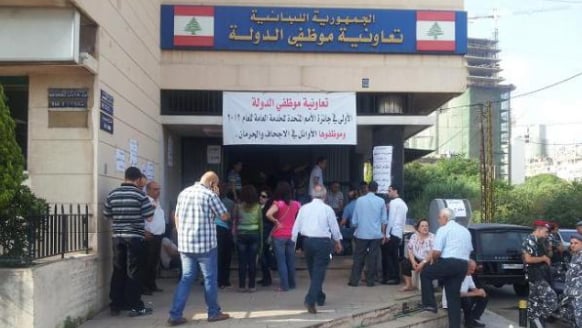Perhaps some readers are like me when they watch a horror movie. You know something terrible is about to happen and you want to shout and warn the character not to open the door or to take an emergency action before it is too late. But it is of course a horror movie and the killer or the monster attacks. This is how I feel about the humanitarian aid situation in northwest Syria and Idlib.
The United Nations resolution that permits the humanitarian operation of the UN to send supplies from Turkey over the Syrian border at Bab al-Hawa into Idlib will expire on July 10. A United Nations report earlier this month said approximately 1,000 trucks with humanitarian supplies cross through Bab al-Hawa monthly to help 3.4 million Syrian civilians who are in urgent need of assistance. And like the horror movie, the Russian government has warned publicly that it will use its veto to block another extension of this operation. Do Washington and its European friends have a plan to prevent the disaster that will start on July 11?
President Biden and his advisors said they would discuss the Syrian humanitarian aid problem with President Putin in Geneva on June 16. I was a little nervous when Biden at his June 14 press conference three times confused Syria with Libya. I was more nervous when I saw the list of Biden’s advisors accompanying him to the meeting with Putin. They all are good people and intelligent but none are experts about Syria and humanitarian aid. By contrast, Putin inserted in his delegation his special envoy for Syria, Alexander Lavrentiev.
The Russians would be able to discuss details about Syria that the American team could not. The Americans entered the meeting apparently with the mentality that if they told Russia the extension of cross-border humanitarian aid is important to Washington, Putin would accept.
Biden told the American media after the summit meeting that he and Putin discussed “humanitarian aid corridors” but “humanitarian aid corridors” are not precisely the same as “cross-border humanitarian operations.” The corridors can refer to routes for humanitarian aid originating in territory controlled by the Syrian government, not Turkey. The Syrian government blocks assistance from its territory to Idlib so this type of humanitarian corridor will not save the 3.4 million Syrian civilians. Reuters agency then reported that in fact Russia did not pledge to permit an extension for the cross-border aid operation. The horror movie is continuing.
I have written before about how Washington can never seem to understand Syria and the dynamics of the war there. One of the biggest mistakes is that Washington overestimates its political and military influence. For example, before the June 16 summit meeting, an American official said that Biden would tell Putin if Moscow blocks the extension of cross-border assistance the Americans would not cooperate further with Moscow on the Syria file. Other American analysts in Washington said that America must make clear the cross-border operation is a priority for the Americans. The US ambassador to the United Nations, Linda Thomas-Greenfield, even visited the border with Idlib three weeks to show American concern.
In fact, from Putin’s point of view Washington now does not cooperate on Syria. It does not help stabilize the Syrian government and it impedes reconstruction of Syria. Instead, American sanctions cause difficulties for Damascus. If Washington wants Putin’s help, it must pay a price. And because Moscow knows from Biden that this issue of aid is very important to Washington, Moscow’s price will go up.
The European Council on Foreign Relations in April suggested Washington donate more humanitarian aid to the United Nations operation in Damascus in return for Russian agreement to a final year of cross-border aid and after that beginning in summer 2022 all humanitarian aid for Syria would be under the control of the Assad government.
Other analysts believe that Putin might accept extending cross-border aid in return for a reduction in American sanctions. At the same time, a Kurdish media report said Biden would allow Russian oil companies to take over the operations of an American oil company in the autonomous zone in northeast Syria. All of these ideas have advantages and disadvantages. I had suggested in the American media in January that the American government prepare to replace the UN operation and lead a new cross-border international operation with European and Turkish allies. Now there is not enough time to prepare, and in any case this idea also has big problems. Unlike a Hollywood horror movie, there is no clear solution to solve the crisis and time is short. The best thing the Biden administration can do now is prioritize among its goals in Syria and saving civilians must be the priority.





